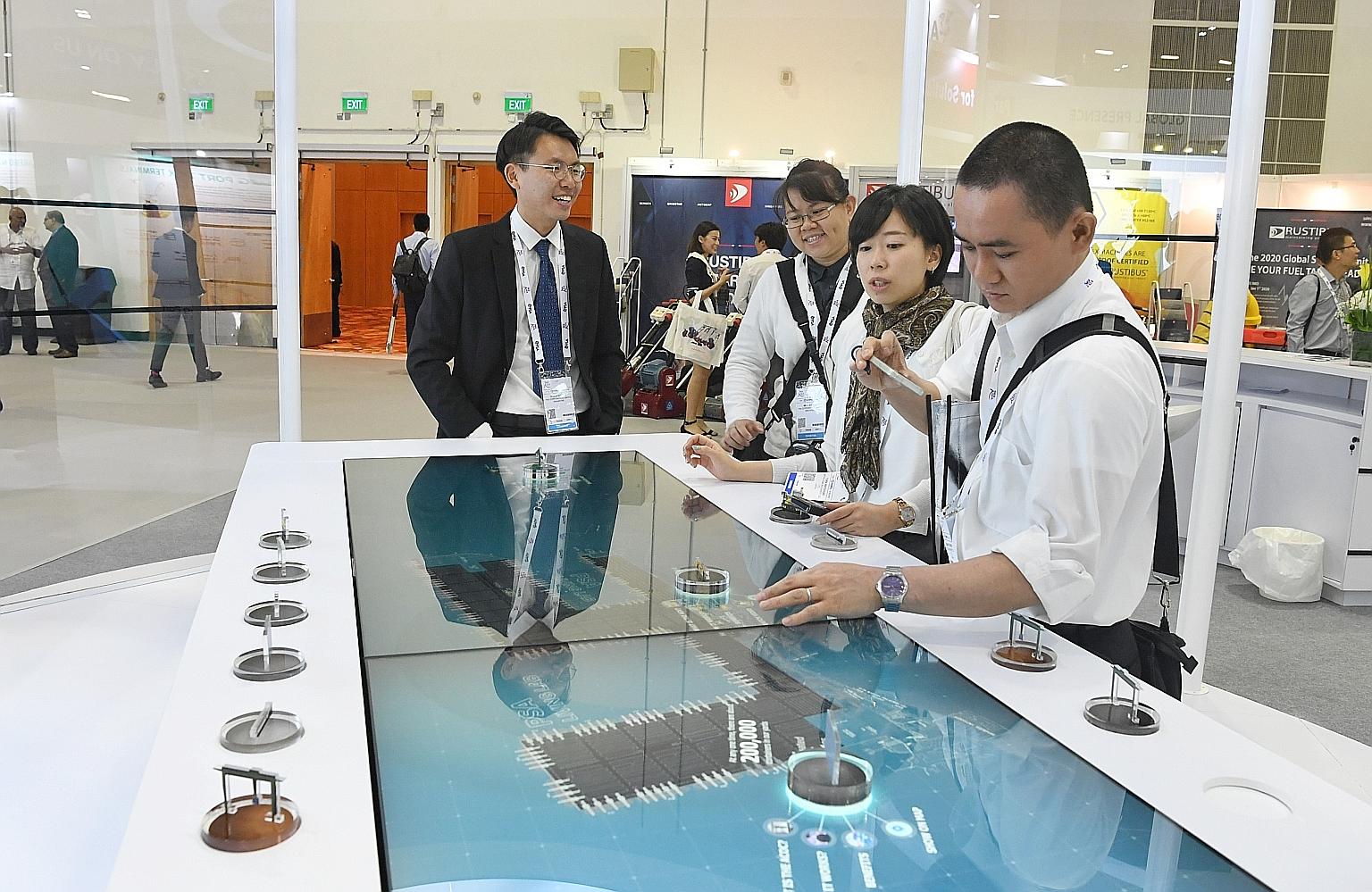What's needed to beat maritime manpower crunch
Sign up now: Get ST's newsletters delivered to your inbox

Visitors at a booth at the Sea Asia 2019 exhibition yesterday. The three-day event, with debates and discussions, aims to future-proof maritime leaders amid changes in technology as well as regulations.
ST PHOTO: KHALID BABA
Toh Ting Wei
Follow topic:
The maritime sector has struggled to attract and retain talent for many years, and addressing this will require collaboration among stakeholders and retraining of experienced staff, said Senior Minister of State for Transport Janil Puthucheary yesterday.
Dr Janil, who noted that the manpower crunch applies to both seafaring and shore-based jobs, said: "Singapore is very used to looking at manpower as a significant constraint on economic growth.
"But if we can get the management and interventions correct, it becomes a competitive advantage."
He was speaking at the opening ceremony of Sea Asia 2019 at the Sands Expo and Convention Centre. The three-day event, with debates and discussions, aims to future-proof maritime leaders amid changes in technology as well as regulations.
Dr Janil said one key manpower challenge for maritime firms is retraining their workforce to take advantage of digital technologies.
"The kids that are coming through our education system will be ready to make use of these technologies," he added. "But what we need to look at is the older workers, the mature workers who are really very experienced. They have domain knowledge, they have industry expertise, but they need new skills to take advantage of digital technologies to make them more effective in the future."
He also said the authorities will continue to partner key stakeholders, such as the labour movement and institutes of higher learning, to attract new talent and improve the skills of existing workers.
One such initiative is the Maritime Cluster Fund for Manpower Development, which is administered by the Maritime and Port Authority of Singapore. The fund helps to support training for more than 5,000 people each year.
Dr Janil noted that manpower issues, the impact of digitalisation and tighter environmental regulations are the three key challenges facing the maritime sector.
"All three... are not things we can solve on our own, we have to have collaboration, we have to have international partnerships," he added.
"A forum like today's is an opportunity to bring the world to Singapore, and let Singapore see what the world is doing so that we can solve these challenges together."
In terms of digitalisation, Dr Janil said it has disrupted the industry, but it can also spur the next wave of growth opportunities. For the drive towards cleaner energy, he said this would increase costs, but Singapore has braced itself to adapt.
On the compulsory use of compliant low sulphur fuel oil coming into place next year, he said: "We are prepared for this implementation in Singapore and we hope to ensure minimal disruption to the industry."

